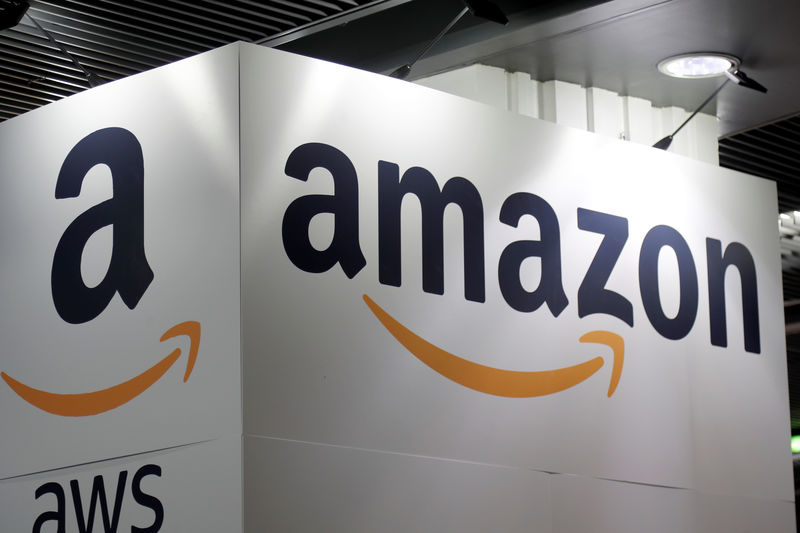This post was originally published on this site
https://i-invdn-com.akamaized.net/news/LYNXNPEC0E0NG_M.jpg
JOHANNESBURG (Reuters) – Like many of her compatriots, Kubashnee Moodley made her first foray into online shopping during South Africa’s coronavirus lockdown. She is not a satisfied customer.
The 42-year-old business management coach was once charged for a parcel she never received and also had groceries delivered to her Johannesburg home after dark. “I was not going to risk going to the gate … especially with crime so high,” she said.
Moodley’s experience encapsulates the challenging situation facing the e-commerce sector in Africa’s most advanced economy.
Having long lagged behind much of the world in terms of e-commerce, South African retailers and delivery start-ups have been doing a roaring trade online as consumers shy away from shops during the COVID-19 pandemic, with the likes of Pick n Pay (J:PIKJ), Checkers and OneDayOnly experiencing an explosion in demand.
But this post-COVID boom is straining the capacity of even the largest retailers, leaving some customers complaining of long wait times and poor service.
The ability to alleviate those growing pains will dictate which companies emerge as e-commerce leaders and which will be left behind.
Factors such as fear of parcel theft, online fraud and high mobile data costs have long hindered South African e-commerce growth, experts say.
Global e-commerce leviathan Amazon (O:AMZN) does not operate in the economy of 58 million consumers, partly because of the cost and challenges of setting up the required infrastructure, analysts say. And African giant Jumia <4JMAy.DE> (N:JMIA) only launched in South Africa this year.
Amazon, the vast majority of whose customers have to rely on cross-border shopping at its 16 websites around the world, declined to comment.
ONLINE LAGGARD
E-commerce accounted for only 1.6%, or $1.2 billion, of South African retail sales in 2019, according to London-based market research firm Euromonitor International. In the United States, the figure is 14.8%. Even Kenya shops more online than its larger neighbour.
However, Euromonitor expects sales to double this year while Nielsen South Africa’s retail lead analyst Gareth Paterson predicts up to 200% growth in online food purchases.
A survey conducted by Visa (NYSE:V) found that 64% of consumers in South Africa bought groceries online for the first time because of the coronavirus outbreak and that 53% made their first online purchase from a pharmacy.
When lockdown restrictions imposed in late March were loosened in May, market researcher Urban Studies found that only 50-70% of customers returned to shopping centres.
“This was the quantum shift,” said Anthony Thunstrom, chief executive of clothing and homeware retailer TFG (J:TFGJ). “We probably advanced two to three years in terms of online demand because of COVID-19.”
Nikki Lincoln, a 34-year-old communications specialist, thought shopping online would spare her the “unnecessary risk” of going out during the pandemic.
“Woolworths has closed off online deliveries for my area, so I can’t shop there at all. And Pick n Pay has such a long waiting time you might as well just go to the shop,” she said, naming two of South Africa’s leading supermarket chains.
CAPACITY BOOST
Woolworths (J:WHLJ) said that home delivery suspensions were temporary, resulting from an employee testing positive for the virus, but acknowledged that increased demand had caused delays.
In April it launched a drive-through click-and-collect service, boosting its online capacity by 50%.
When the lockdown began, Pick n Pay partnered with Bottles, an alcohol delivery app that expanded into groceries with the promise of same-day service.
“Our enhancements last year to create a stronger online operation … enabled us to expand our offer in response to the demand for online shopping. Our team rapidly increased its capacity and reach and met the needs of many new customers,” Jessica Knight, head of online at Pick n Pay, said without commenting specifically on delays.
Sixty60 – a grocery delivery app run by Shoprite’s (J:SHPJ) Checkers supermarkets – backed away from hourly dispatching, opting instead for same-day delivery. It is now expanding its delivery area weekly.
Companies hoping to compete, therefore, are quickly pumping money into their e-commerce offerings even as they feel the pain of a pandemic-induced economic downturn.
Grocery delivery business Zulzi was forced to limit trading to two hours a day for two weeks after shoppers overwhelmed its app, but it has since quadrupled the number of shoppers and drivers it employs and doubled its customer care staff.
It is now processing 2,000 orders a day – five times 2019 levels – and has done a year’s worth of turnover in the past two months.
TFG, the brands of which include @home, Foschini and Markham, plans to raise 3.95 billion rand ($234.2 million) this month, partly to bolster its e-commerce business.

